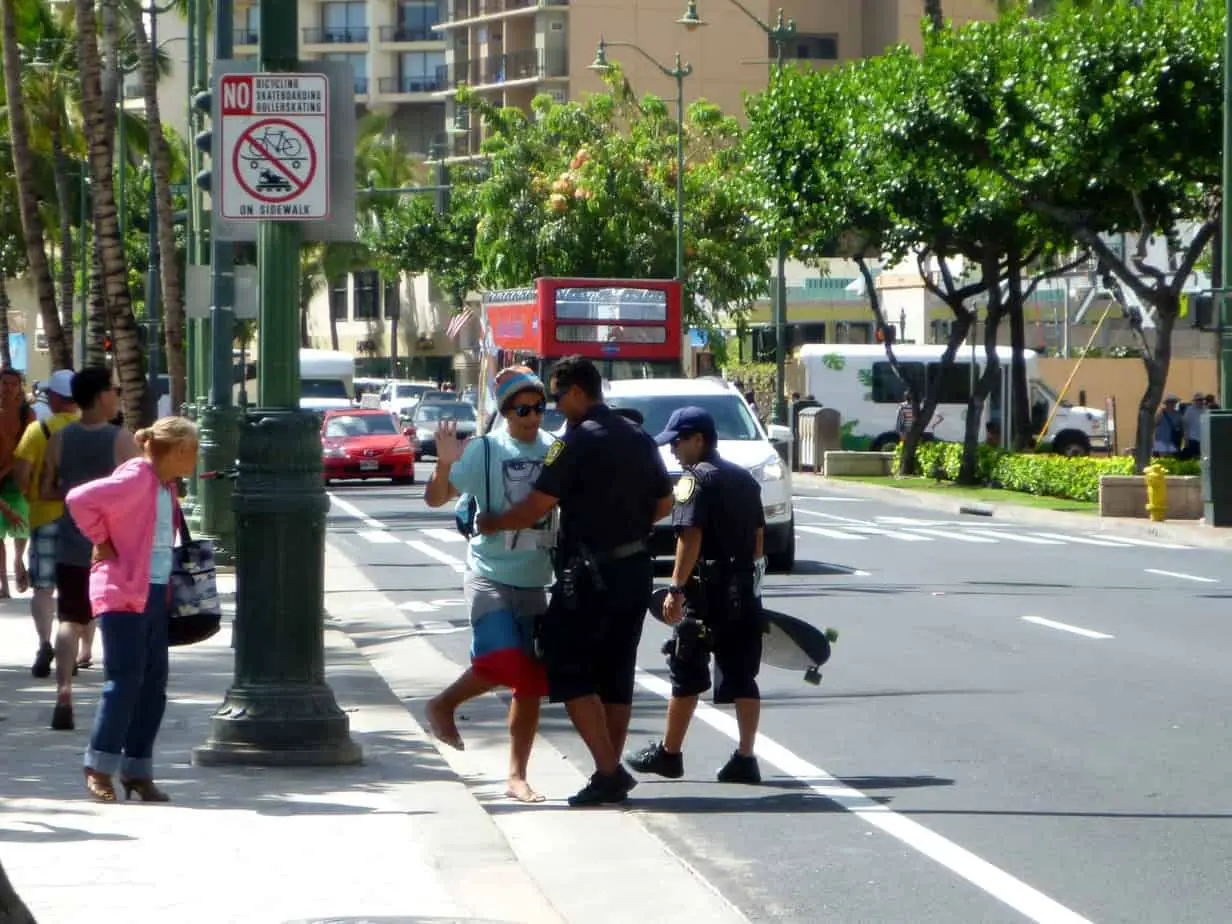Before you purchase an electric longboard, skateboard, or e-board, you need to answer one crucial question: Is it even legal to ride them? You don’t want to waste your money.
Unfortunately, the answer is that there is a good chance they are not legal in all circumstances in your area or your country. But this isn’t because governments have criminalized it. It is because these vehicles have just entered the mainstream, and most governments or countries have little to no legislation regarding e-boards. Even the places that do have some use very vague terminology.
The truth is, electric boards aren’t always legal only because most governments haven’t worked out laws for them yet. A large portion of the rules and regulations have only just come out in the past five years.
These include things like how old you need to be to drive electric skateboards, the acceptable speed limit, and what safety gear you are expected to wear when riding one.
Are Electric Longboards Legal In The United States?
The US doesn’t have any federal law dictating the legality of electric longboards. Each state’s government is responsible for regulating its use. Therefore, there are different laws in each part of the country. You need to check with your state for specifics.
The following list covers four states and a few different types of laws you might encounter on your search.
Electric Longboard Laws In California
California law defines motorized boards as devices that are less than 18 inches wide and 6p inches deep. They should only be able to transport one person and must have an electric propulsion system of fewer than 1000 watts. E-boards fit this description.
Therefore, your e-board doesn’t need insurance, license plates, or registration. You can use bikeways, bicycle paths, and trails. However, you are not allowed on sidewalks.
Moreover, under Assembly Bill 604, your skateboard needs to fit specific requirements for you to be able to ride it. It also outlines limitations when using the skateboard. You can’t leave it parked outside government buildings, schools, etc.
Electric Longboard Laws In Florida
The law in Florida is very strict. Riding an e-board on public property here is illegal. You can own a skateboard and do whatever you want with it at home. However, as soon as you step outside onto the street, you’re breaking the law.
Furthermore, it is important to note that Florida requires registrations for all motor vehicles. They are defined as “…or any other vehicle operated on the roads of this state, used to transport persons or property, and propelled by power other than muscular power.” Since e-boards use electricity, they fall under this definition; however, you can’t get registrations for skateboards.
Therefore, you can’t ride it on the street, sidewalk, pavement, park, or bike lane.
Some people have said authorities aren’t very strict about these laws since e-boards aren’t explicitly mentioned. So you can ride one; however, it is at your own risk.
Electric Longboard Laws In Arkansas
Arkansas lumps skateboards in with scooters. It is legal to ride them here. Under the AMVC regulations, your vehicle shouldn’t go above 15 mph, and you need to be over 16 years old to operate it.
Electric Longboard Laws In Texas
Texas regulates e-boards the same way it regulates mopeds and bicycles. You can only use them on streets or highways with a speed limit below 35 mph. However, you can cross a street that has a higher speed limit. It is okay as long as you don’t go down it. Also, you can ride the board on all bicycle lanes and sidewalks irrespective of the speed limit there.
This is where the law gets complicated. In Texas, each city is allowed to add to subtract from state law. So they have the power to make it more or less strict.
They could prohibit using these boards completely or let you ride down a street with a speed limit of 50 mph. While you should always check local laws, it is especially important to do so here.
Other Countries And Their Electric Skateboard Laws
Electric Skateboard Laws In United Kingdom
Electric skateboards are regulated in a similar fashion to hoverboards and are illegal on public property in the UK. But most places don’t enforce the law. If an officer does decide to take action, you can be fined and have your board confiscated.
Electric Skateboard Laws In Canada
Similar to the US, there isn’t one federal law regarding e-boards. Each province has its own regulations. Additionally, each municipality can add to provincial law.
For instance, they are illegal in British Columbia and can’t be insured. However, this isn’t enforced in most areas. A police officer in Vancouver stated that people aren’t ticketed unless they’re being reckless.
The best way to find information on local laws for Canada is by looking for data on hoverboards or Solowheels.
Electric Skateboard Laws In Australia
Under Australia’s road rules, skateboards fall under the category of ‘wheeled recreational devices.’ Much like the UK and Canada, there isn’t an explicit mention of these devices in the legal code, but it does fit the definition.
Skateboards are built to transport a person, are propelled by human power, and don’t include motor-assisted devices.
Therefore, Australia’s legal system regulates e-boards differently from other parts of the world because they’re not considered motor vehicles. Here, you’ll be seen as a pedestrian and not a rider in the eyes of the law.
Wheeled recreational devices are not allowed on roads with dividing lines or speed limits above 50 kilometers per hour or at night. It is okay to use it on a sidewalk, but you need to stay as far to the left as possible when doing so.
European Union Nations’ Electric Skateboard Laws
There aren’t any EU regulations for electric skateboards and longboards, so each country has its own policies. Most define them as light electric vehicles alongside bicycles and scooters. If you’re in Finland, you’ll have to register and insure your e-boards.
Denmark, Germany, and Belgium are okay with these vehicles as long as you stay within particular speed limits. France is working on legislation to legalize them. The rest of Europe is in a gray area.
Wrap Up
Electric longboards and skateboards (e-boards) are new technology, and lawmakers haven’t caught up to it yet. There aren’t a lot of explicit or clear regulations about them, and so, in most cases, you’ll have to make some leaps.
When looking for laws about e-boards, you have to figure out which definition best applies to them. Are they the same as scooters, motor vehicles, or recreational vehicles? Once you do, abide by laws that apply to that category.
If this article was helpful, sign up for our Newsletter for more great content.

